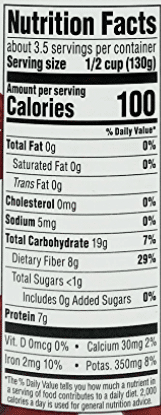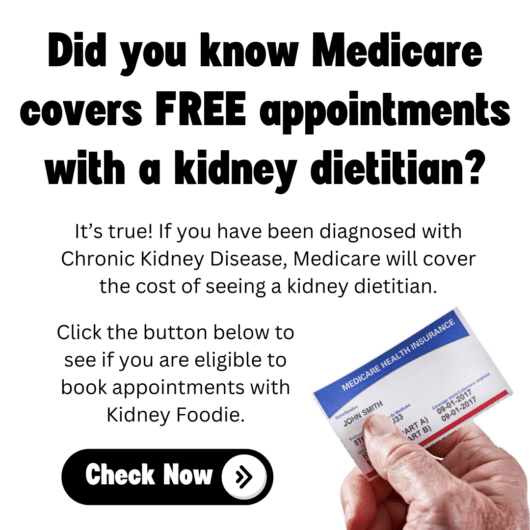This week, we’re talking beans!
This post may contain affiliate links through which we may earn a small commission to help keep this website free.
Beans are such an underrated food. And for some reason, no matter how old I get, the childhood rhyme of “Beans, Beans, they’re good for your heart, the more you eat ‘em, the more you fart!” still sings in my mind anytime I read the word beans.
And they are good for your heart, and I would argue they are good for your kidneys too (although depending on what you read on the internet, you may think otherwise at the moment).
Why do I love beans?
First and foremost, they are packed with fiber. Fiber is so so so important to people with kidney disease. And it is even more important if you have kidney disease and diabetes. And whenever possible, we always want to get our fiber in the form of real foods. Fiber is important for your gut health. Fiber feeds the healthy bacteria in your gut, which help keep you healthy.
Fiber helps keep you regular, and avoiding constipation is an important strategy in maintaining good control of your potassium levels (weird, I know). Fiber helps keep your blood sugar more even to avoid big spikes after a meal. Fiber can also make your meals feel more filling, so you don’t overeat. So many wonderful things about fiber, and beans are an excellent source of fiber.
Another thing I like about beans is that they are a good plant-based source of protein. Even if you’re on a lower protein diet, you still need to be consuming some protein. Beans are a great way to get some protein in without going overboard. A half cup of cooked beans has around 7g of protein, depending on the kind that you buy. Meanwhile, a similar portion of cooked chicken would pack in 25g of protein (which is probably way too much for the typical person with CKD who is not on dialysis) and zero fiber.

So why are people with CKD still avoiding beans?
One big misconception that I still see on a lot of websites and forums (even reputable websites!) is that beans are high in phosphorus. And the reason that this misconception won’t seem to go away is because beans technically do contain a lot of phosphorus. However, that phosphorus is locked up by other compounds that our bodies are not designed to digest, so even though the beans are high in phosphorus, most of that phosphorus just gets flushed out with our poop. I could go into a lot more detail on this concept, but then this would be a REALLY long email. If you want some in depth explanations on phosphorus and which foods are truly high in phosphorus, then you should check out this video on youtube (it’s actually a free excerpt from our Kidney Foodie Academy).
But suffice it to say, I do not consider beans a high phosphorus food! If you read somewhere online to avoid beans because of the phosphorus, then that should be a red flag letting you know that the website is outdated and NOT where you want to be getting your kidney diet information.
The second issue that seems to come up with regards to beans and kidney disease is the potassium content. And it’s true, beans do contain potassium. But here’s a little tip: buy canned beans! The canning process lowers the potassium content of beans A LOT. For example, if you look at a 100 calorie serving of boiled kidney beans, it will have 319mg of potassium. But a 100 calorie serving of canned kidney beans (which is a little more than half a cup)? Only 230mg of potassium! You can reduce the potassium content of beans by 28% just by choosing canned beans.
And you want to know another secret? If you RINSE those beans under fresh water after you drain them, you can actually rinse off an additional 22mg of potassium.
That’s a lot of potassium that you can get rid of by switching to canned beans.
And remember, you may not even need to be watching your potassium intake. Many people with kidney disease do NOT have a potassium restriction. There are lots of things that could affect your potassium levels that are not related to the potassium content of the food you eat (and beans could actually help with some of these issues!). Talk to your dietitian about whether or not you need to be concerned.
And if you ARE on a potassium restriction, then check out canned chickpeas. A 100 calorie portion of canned, drained, and rinsed chickpeas contains only 79mg of potassium. 79mg!!! These are the lowest potassium beans I’ve found and they are so versatile. Canned, rinsed, and drained chickpeas are a very low potassium food.
A final note about canned beans: be sure to buy no salt added beans. Canned foods can be notorious for being high in sodium, so check the labels! I’ve been seeing more and more no salt added bean options in grocery stores, so let’s let the food companies know that we appreciate the healthier options by buying them. Here are a few links to some no salt added beans for your convenience:

